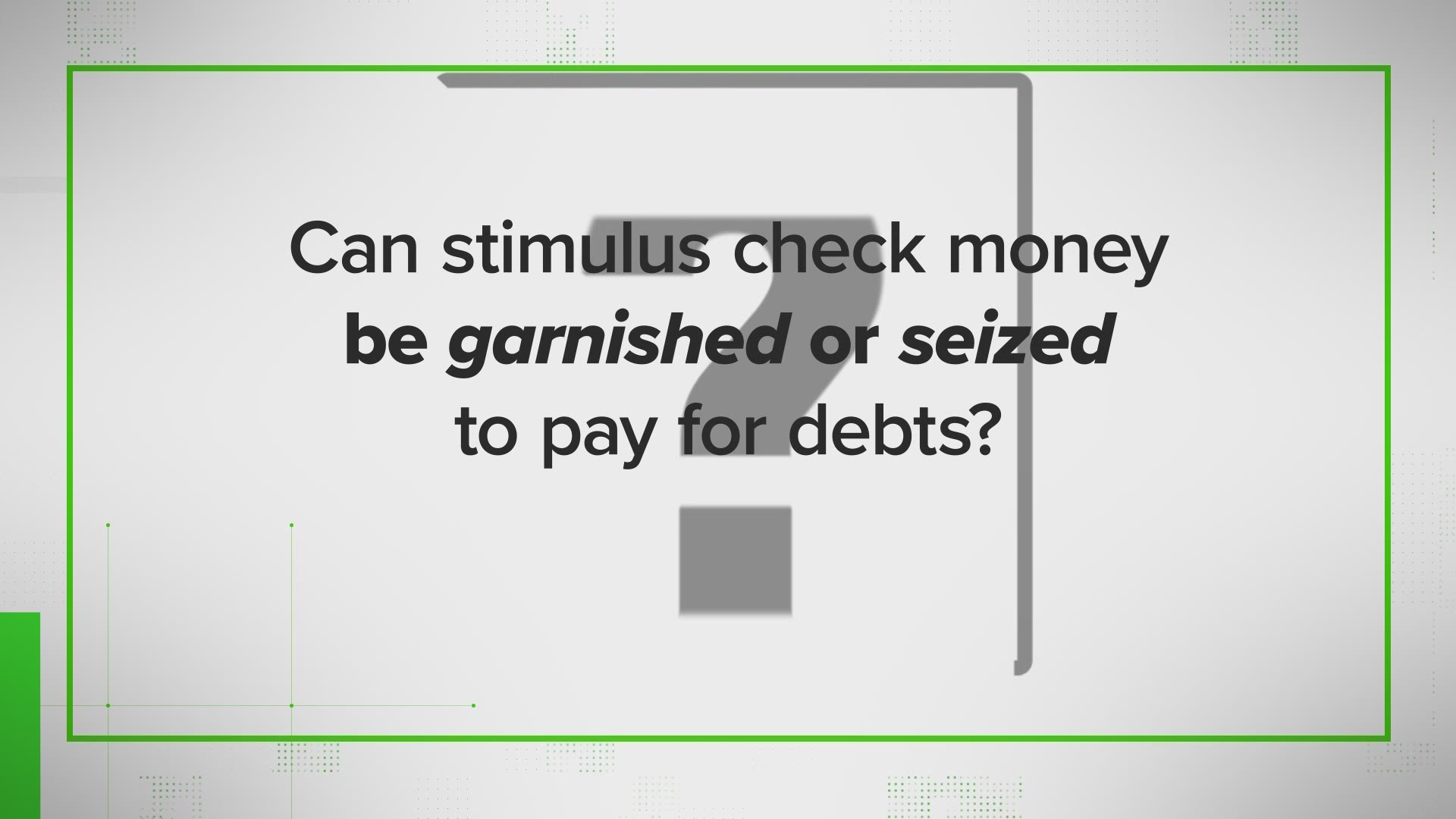Many Americans are receiving their stimulus checks in direct deposits this week.
Those looking to receive checks in the mail will have to wait longer. The House Committee on Ways and Means said the Treasury plans to begin mailing out checks by the end of April. People can still add their direct deposit information if they wish to do so.
Regardless of when Americans are receiving their money, a lot of them have a number of questions regarding the process.
The VERIFY team Thursday is tackling some of the most common questions you have about the stimulus checks. If your questions aren’t answered in this piece, check back to our first VERIFY on stimulus checks from Wednesday.
RELATED: VERIFY: Is the IRS site safe? Will I have to pay back my check? And other common stimulus questions.
Can the money be garnished?
A garnishment is a legal procedure in which a person’s wages are required by court order to be withheld to pay for some kind of debt, according to the Department of Labor.
The text of the CARES Act passed last month does protect your stimulus money from federal and state debts, with the exception of child support.
However, there is nothing in the text that protects your rebate money from private debt collectors or banks.
One way to try to avoid garnishments is to withdraw the money as cash immediately or use it on your needs as soon as possible.
The VERIFY team ran a separate story on this topic previously. You can check it out for more information.
What does ‘Payment Status Not Available’ mean?
The IRS’s FAQ page lists four distinct possibilities that may be causing an error saying "payment status not available."
You could get it because you’re not eligible for a payment. You could get it if you’re required to file a tax return but have not done so for 2018 or 2019.
It’s also possible you could get it because you’ve recently filed your return or provided information through their Non-Filers portal. If that’s the case, your payment status will be updated when processing is complete.
You could also get this error if you are a SSA or RRB Form 1099 recipient, SSI or VA benefit recipient. In this case, your information is not available in the app yet but the IRS is working with your agency to issue your payment.
It can also show up if the information you type doesn’t exactly match what’s on your tax return. Something as simple as capitalization that doesn’t match could mess it up.
The IRS says the payment data is updated once per day, so you can check your status later to see if there are new details on your information.
I got my refund on a card from a tax company - where will they send my check?
HR Block said that people who received their tax refunds on Emerald Cards in the past will get their money deposited to that card’s account. They said they have been contacting clients with information on their stimulus payment and have reminded people who no longer have their Emerald Cards that HR Block will reissue them so they can use their stimulus payment.
Jackson Hewitt has published a table of when and where you’ll receive your stimulus check based on how you received your latest tax refund.
It’s a good idea to check with your tax company specifically to find out how you’ll get the stimulus money. It’s likely you will receive the checks the same way you receive a tax refund.
Will I have to pay someone to get this money?
The short answer: no.
The IRS has an information center to answer questions you have about the stimulus payments and a portal to check your payment status or get your payment. All of this is free. Tax companies also have information about this, alongside details on other paid tax services.
Anything from them asking for your payment is for other tax services. Anything asking for payment to receive your stimulus check specifically is a scam.
What are my options if my spouse owes child support but I don't?
The Texas Attorney General's website clears this one up about a spouse owing child support. It says that while your rebate will be used to pay off child support payments, there are options for relief.
It points to Form 8379 - the Injured Spouse Claim and Allocation form. The IRS says a spouse can fill out this form "to get back their share of the joint refund when the joint overpayment is applied to a past-due obligation of the other spouse."

